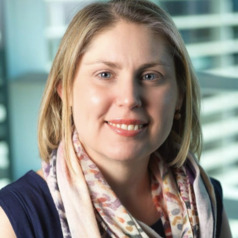
Kimberley Baxter
Research Fellow, Centre for Childhood Nutrition Research, Queensland University of Technology
Kimberley Baxter is a dietitian and Research Fellow at the Queensland University of Technology. Her research aims to promote the use of responsive feeding practices among families experiencing food insecurity through a collaboratively designed intervention.
Kimberley has a background in infant and child feeding and health services research. She holds a PhD from the University of Queensland which explored clinical outcomes with weight change in young people with excess weight.
Less ![]()
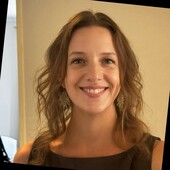
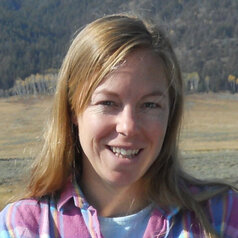
Kimberley Davis
Research Ecologist, United States Forest Service
I am a research ecologist with the USDA Forest Service's Rocky Mountain Research Station at the Missoula Fire Sciences Lab. My research focuses primarily on understanding how the combined effects of changes in climate and changes to fire regimes affect forest resilience and the implications for forest management. Current research projects include: Understanding how climate change may impact post-fire conifer forest recovery, assessing the effectiveness of climate-adaptive post-fire reforestation strategies, and projecting potential changes in vegetation due to climate change to help inform management of post-fire vegetation transitions.
Less ![]()
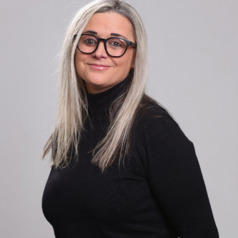
Kimberley Hardcastle
Assistant Professor in Marketing, Northumbria University, Newcastle
Kimberley is an Assistant Professor in Marketing at Newcastle Business School (AACSB), Northumbria University, leading one of the largest Marketing degree programmes in the North East. Kimberley is a commercially focused academic specialising in brand strategy. Prior to entering academia, Kimberley has worked in various marketing and business management roles in the F & B sector. She has a PhD in Marketing and is a researcher, writer, speaker & mentor in branding, sustainable consumer behaviour, AI, algorithms & platforms. In particular, she is keen to understand how marketers can use successfully proven influential buyer strategies from behaviour science to nudge consumers to create good habits. Her work has been published at several international conferences and in peer reviewed journals. Whilst working at the Newcastle Business School (AACSB), Kimberley has worked with academics and practitioners from several different fields. As part of her departmental roles, Kimberley is Programme Leader for Business and Marketing and leads on the Branding module on the MSc Marketing Programme. Kimberley is an external examiner at Bournemouth University for Programmes MSc Marketing Management & MSc Marketing and User Experience. Kimberley is also a reviewer for the Journal of Research in Interactive Marketing, Journal of Consumer Behaviour and the Academy of Marketing Science. Kimberley has been awarded Fellowship of the Higher Education Academy. Kimberley is also on the judging panel for the prestigious North East Marketing Awards.
Less ![]()
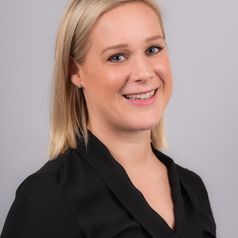
Kimberley Jane Bartholomew
Associate Professor in Education, University of East Anglia
Kimberley’s research is primarily based within the framework of self-determination theory and aims to (i) accurately measure and map the motivational determinants of adaptive and maladaptive engagement in learning environments (i.e., education, sport, and exercise); and (ii) utilise this information to inform the implementation and evaluation of intervention programmes designed to facilitate optimal motivation, performance, and well-being in these contexts. Her interests in this area include the use of online platforms in intervention work with teachers and young people and focuses on the way in which we can develop and assess digital resilience. Kimberley is also interested in the influence of educational practices on sustained health-conducive behaviour (healthy eating and exercise). Her research as received funding from the ESRC, British Academy, and the UKRI among other organisations and charities.
Less ![]()
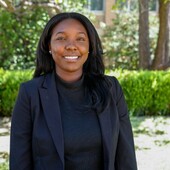
Kimberly Clarida
Postdoctoral Researcher in Educational Administration, Michigan State University
Less ![]()
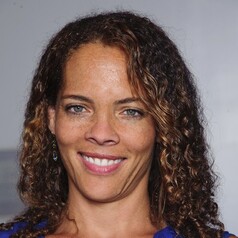
Kimberly DaCosta
Associate Professor of Sociology, New York University
Kim DaCosta is a sociologist interested in racial inequality and, in particular, the contemporary production of racial boundaries. Her book, Making Multiracials: State, Family, and Market in the Redrawing of the Color Line (Stanford University Press, 2007), explores the cultural and social underpinnings of the movement to create multiracial collective identity in the United States. She is currently writing on how interracial extended kin relationships speak to questions of interracial empathy, care and politics. She teaches courses on race in different societies, social mobility, consumerism, and the commercialization of intimate life. DaCosta served as Associate Dean of Students at NYU's Gallatin School for seven years and has been actively involved in NYU's Prison Education Program since its inception in 2013. She is an Associate Professor in the Gallatin School of Individualized Study at NYU and an associate faculty member in the NYU Department of Sociology.
Less ![]()
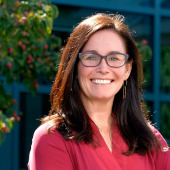
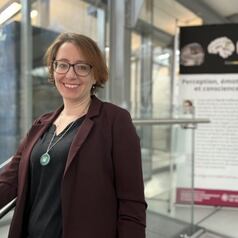
Kimberly Doell
Senior Researcher in Environmental and Climate Change Psychology, Universität Wien
I am currently a senior researcher at the University of Vienna in the Social Cognitive and Affective Sciences Unit. With more than seven years of experience, my research broadly combines elements of neuroscience, environmental and social psychology, big team science and the behavioural sciences to investigate various societal issues. This includes encouraging COVID-19 compliance behaviours, battling the spread of misinformation, combating (political) polarisation, and, most importantly, understanding and promoting climate change mitigation. This line of research is highly interdisciplinary, combining techniques and methodologies from many disciplines, and includes many collaborations with academics from all over the planet.
Less ![]()
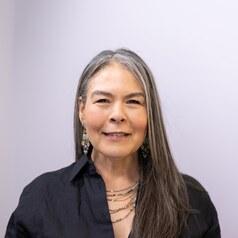
Kimberly Fairman
PhD Candidate in Public Health and Social Policy, University of Victoria
Kimberly Fairman is Nunavummiut her home community is Taloyoak. She is the Executive Director at the Institute for Circumpolar Health Research and holds the NEIHR Grant for the Northwest Territories and Yukon. Kimberly was trained in Nursing and obtained her Master of Public Health Degree from the University of Alberta. She is currently a PhD Candidate at the University of Victoria in Public Health and Social Policy. She is working with researchers, Indigenous knowledge holders, clinicians and policy makers in health systems research that impacts on the northern patient experience. Playing an important role by weaving partnerships into the research fabric, engaging with communities and building northern capacity for health research. Kimberly has been showcasing the valuable contribution of northern communities, practitioners, and indigenous knowledge holders to the modern research agenda. Kimberly also serves on the board of the Canadian Society for Circumpolar Health.
Less ![]()
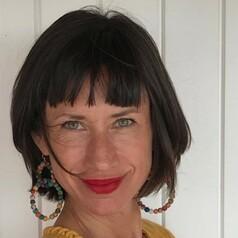
Kimberly Howe
University of Virginia Humanitarian Collaborative Practitioner Fellow; Assistant Research Professor of International Relations, Tufts University
Kimberly Howe directs the Feinstein International Center's Research Program on Conflict and Governance. The majority of her work is focused on the Syria crisis, and the effects of humanitarian and political interventions on civilians, armed groups, and political structures. Kimberly has designed and conducted mixed methods research projects in several war-affected countries around the world including Burundi, the Democratic Republic of the Congo, Colombia, Uganda, Northern Iraq, Syria, Turkey, Lebanon, and Jordan.
Since the late 1990s, Kimberly has been working in a variety of ways to improve the lives of people affected by conflict and war. Kimberly regularly conducts research for the U.S. government on their programs targeting refugees, internally displaced persons, and war-affected populations. Prior to joining the center, she was a Randolph Jennings Peace Scholar at the US Institute of Peace, an Adjunct Associate Research Scholar at SIPA Columbia University, and a Fellow at Harvard University Medical School. From 1999 to 2007, she practiced as a psychotherapist treating survivors of torture and interpersonal violence.
Kimberly holds a B.A. in psychology and an M.S.W. from Simmons College, Boston. She has an M.A.L.D. and Ph.D. in international relations from The Fletcher School at Tufts University.
When she is not in the field, she is based in southern France, where the weather is always nice.
Less ![]()
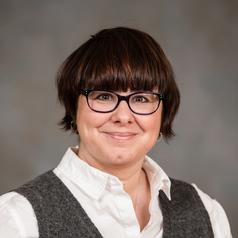
Kimberly Paul
Associate Professor of Biochemistry, Clemson University
Kimberly Paul received her B.S. in Biology from Northwestern University (Evanston, IL, USA), and her Ph.D. in Molecular Biology from Princeton University (Princeton, NJ, USA). At a host-pathogen interactions symposium at a national cell biology conference, she was inspired to continue her post-doctoral research on the host-microbe interactions. After receiving her PhD, she attended the prestigious Biology of Parasitism summer course at the Woods Hole Marine Biological Laboratory (Woods Hole, MA, USA) before starting her post-doctoral research in molecular parasitology at Johns Hopkins School of Medicine (Baltimore, MD, USA). Since 2005, Dr. Paul has been a faculty member at Clemson University (Clemson, SC, USA), where she is currently an Assoc. Professor in the Dept. of Genetics & Biochemistry and a Founding Member, Eukaryotic Pathogens Innovation Center (EPIC) Her research centers on fatty acid metabolism and drug discovery in Trypanosoma brucei, the causative agent of African sleeping sickness.
Less ![]()
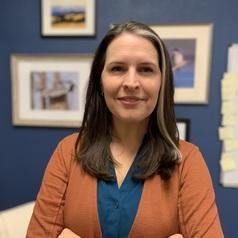
Kimberly Rosvall
Associate Professor of Biology, Indiana University
I want to understand how behavioral evolution unfolds and why animals behave how they do. I love bold experiments that embrace the complexity of the natural world.
I began my career studying why females are aggressive, using large scale field experiments to induce territorial competition among cavity-nesting birds. Through analysis of the winners of such competition, I have integrated how and why questions in animal behavior, combining muddy boots field biology with endocrinology, neurobiology, and genomics. Recently, I have applied these tools to a new combination of age-old and emerging questions that extend my work into to macroevolution, range expansion, stress resilience, and the physiological mechanisms that facilitate these universal phenomena. My research group works entirely on free-living birds.
Less ![]()
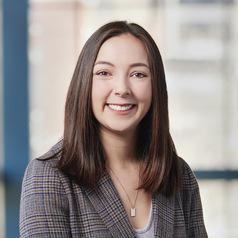
Kimberly Zayhowski
Assistant Professor, Boston University
Kimberly (Kim) Zayhowski, MS, CGC, is an assistant professor, genetic counselor, and clinical researcher at Boston University Chobanian & Avedisian School of Medicine. Much of Kim’s current research within genetic counseling focuses on improving care for LGBTQIA+ patients, specifically focusing on the transgender and intersex communities.
Less ![]()
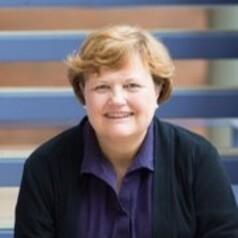
Kimberly D. Gwinn
Professor of Entomology and Plant Pathology, University of Tennessee
Kimberly D. Gwinn is a Professor of Entomology and Plant Pathology at the University of Tennessee. Her lab currently investigates natural products that are produced by plants and microbes and their uses as medicines and as bio-pesticides. She has also explored the production of toxins produced by fungi and their negative impacts on humans and animals. Dr. Gwin directs Explore BiGG Data, a summer research program focused on training women in bioinformatics, genetics, and genomic sciences.
Less ![]()
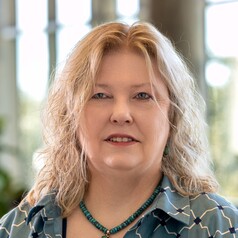
Kimberly H. Breuer
Associate Professor of Instruction, University of Texas at Arlington
Kimberly Breuer is an Associate Professor of Instruction in the Department of History at the University of Texas at Arlington, where she teaches courses in the history of science and technology and Iberian history and conducts research on teaching and learning. She holds a Ph.D. in history from Vanderbilt University, specializing in Latin American and Native American history in the late medieval and early modern eras. She also earned a BS in Aerospace Engineering and worked in the aircraft industry for several years.
Less ![]()
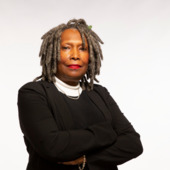
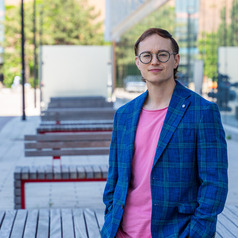
Kinnon R. MacKinnon
Assistant Professor, School of Social Work, York University, Canada
Kinnon R. MacKinnon, MSW, PhD is an Assistant Professor in the School of Social Work at York University. Prior to joining YorkU, he completed a PhD in Public Health Sciences at the Dalla Lana School of Public Health, University of Toronto, along with fellowships in health professions education research (The Wilson Centre, Temerty Faculty of Medicine) and in the social determinants of health (Munk School of Global Affairs and Public Policy). Dr. MacKinnon’s program of community-engaged scholarship examines how gender-diverse people access and experience gender-affirming healthcare. More recently, he has been examining sexual and gender minority identity fluidity, and care needs associated with discontinuing gender-related medical interventions. Dr. MacKinnon has published over 40 peer-reviewed academic papers and book chapters, including in the British Journal of Social Work, the British Medical Journal, Critical Public Health, Social Science and Medicine, and the Journal of the American Medical Association. His practice background includes support group facilitation in the areas of gender-affirming surgery, queer/trans youth, and body image/eating disorders. In 2022, he was recognized by York University with a Research Leaders award.
Less ![]()
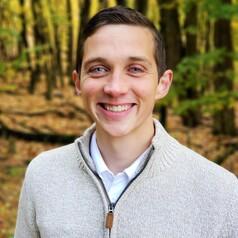
Kip Holderness
Associate Professor of Forensic and Fraud Examination and Accounting, West Virginia University
Kip Holderness specializes in managerial and forensic accounting. His research focuses primarily on the impact of fraud and employee deviance as well as improving detection methods. He currently serves as the director of research for the Association of Certified Fraud Examiners Research Institute.
Less ![]()
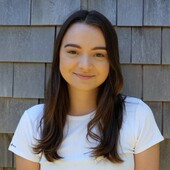
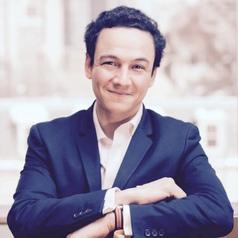
Kiran Banerjee
Assistant Professor of Political Science & Canada Research Chair, Dalhousie University
Dr. Banerjee is Assistant Professor in the Department of Political Science, Dalhousie University, where he holds the position of Canada Research Chair in Forced Migration and Refugee Policy. Dr. Banerjee’s research addresses global governance with a focus on the normative role of international institutions and domestic political actors in responding to forced displacement. As Canada Research Chair in Forced Migration and Refugee Policy, Banerjee's research focuses on developing effective policy responses to displacement at the domestic, regional, and international level. His broader research interests in political science include political theory, international ethics, peace and conflict studies, the history of political thought, international relations theory, and migration studies, as well as legal theory.
Less ![]()
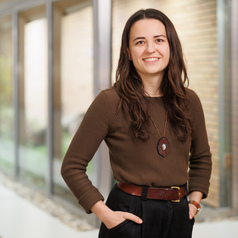
Kiri Marker
Science Communications Coordinator, Universität Wien
I am interested in creating healthier urban landscapes that preserve habitat and biodiversity. My work has focused on using spatial wildlife population modeling to guide the management of both threatened and invasive species.
In addition to research, I am engaged in science communication, aiming to make complex environmental and ecological issues accessible to a wider audience. My experience spans from community radio to media relations and developing National Parks interpretation for state government.
Less ![]()
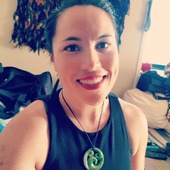
Kiri West
Lecturer in Indigenous Communication, University of Auckland, Waipapa Taumata Rau
Less ![]()
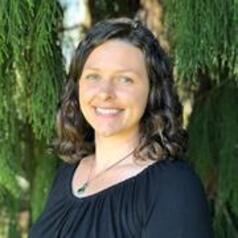
Kiri Joy Wallace
Research Fellow in Restoration Ecology, University of Waikato
I am passionate about restoration of native ecosystems, especially in urban areas. Going hand-in-hand with that, I like to restore people's connection with nature, helping them enjoy and benefit from it! Research involving society and the environment sparks my interest and allows me to shine, whatever a specific project may entail.
Less ![]()
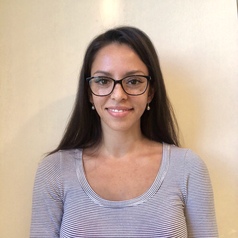
Kiriloi M. Ingram
Postdoctoral Research Fellow, Charles Sturt University
My research analyses the gender dynamics of violent political movements. My PhD focused on analysing how and why gender is constructed and manipulated in the Islamic State's propaganda and politico-military strategies. I am currently analysing the role of gender in the extreme right, including how and why gender-based and sexual violence is weaponised by these movements.
Less ![]()
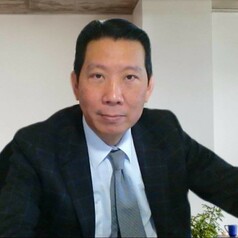
Kirk Chang
Professor of Management and Technology, University of East London
Kirk Chang is a university professor, consultant, and researcher in the field of Human Resource Management and Technology.
Professor Chang researches digital-management related issues and analyses the implication of technology on employees, managers, and their organizations. His research themes are linked to employee behavior (individual level), team dynamics (group level), personnel management (managerial level) and organisational competitive advantage (organisational level).
He also investigates issues of personnel management and scrutinizes the implication of technology (AI, Digitalization) on employee behavior, group dynamics, teamwork, competitive advantage and organizational performance.
Less ![]()
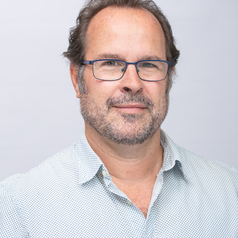
Kirk Dodd
Lecturer in English and Writing, University of Sydney
I am a Lecturer in the discipline of English and Writing at the University of Sydney, teaching Rhetoric, English and Writing. I publish regular research on Shakespeare's rhetoric. As a creative writer, I have written two "Shakespearean" blank verse dramas that reapply the rhetorical precepts used by Shakespeare. My first play, "The Tragicall Historie of Woollarawarre Bennelong", was shortlisted for the Griffin Award and is published by Australian Plays.
Less ![]()
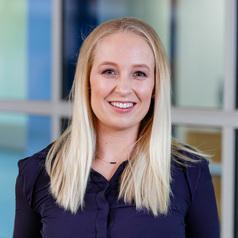
Kirsten Adlard
Supervisor of Engagement, Communication, and Outreach, Centre for Community Health and Wellbeing, The University of Queensland
Kirsten is an Accredited Exercise Physiologist and completed her PhD in exercise oncology at The University of Queensland. Her research investigates the influence of exercise intensity and peer support on the alleviation of fatigue in people living beyond cancer; with her broader research agenda aimed at helping communities live well through the translation of evidence-based health initiatives.
Less ![]()
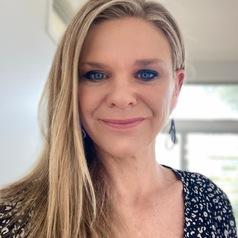
Kirsten Baird-Bate
PhD Research Candidate, School of Early Childhood and Inclusive Education, Queensland University of Technology
My PhD explored how primary carers of autistic children conceptualise wellbeing and the factors that promote and diminish wellbeing in this group. The findings contribute to the development of more reflective policies, systems, and services to support better outcomes for autistic children and those who care for them. This work is supervised by Professor Beth Saggers and Dr Lyndal O'Gorman. I am also a sessional academic within Inclusive Education and autism as well as a mother to an autistic young person.
Less ![]()
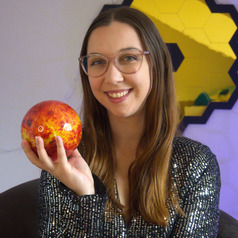
Kirsten Banks
Lecturer, School of Science, Computing and Engineering Technologies, Swinburne University of Technology
Dr Kirsten Banks is a passionate astrophysicist and Lecturer at Swinburne University of Technology, working with the ARC Centre of Excellence for Gravitational Wave Discovery (OzGrav) to connect cutting-edge research with the public. Her love for the universe was sparked during a high school excursion to see a documentary about the Hubble Space Telescope. With a PhD in astrophysics and proud Wiradjuri heritage, Kirsten offers a unique perspective in her science communication. She captivates audiences worldwide with her infectious enthusiasm, sharing fun facts and leading workshops to inspire wonder in people of all ages. Join Kirsten on a cosmic journey to explore the wonders of the universe like never before.
Less ![]()
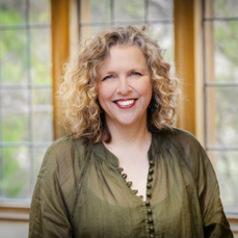
Kirsten Deane
Deputy Director, Melbourne Disability Institute, The University of Melbourne
Kirsten Deane is the Deputy Director of the Melbourne Disability Institute and an Enterprise Professor in Disability. Based at the University of Melbourne, MDI facilitates and supports interdisciplinary research that addresses the complex and systemic issues facing people with disability. MDI brings people with disability, families, government and non government organisations together with researchers to co-produce research that has real-world impact on policy and practice and helps to build a more inclusive and equitable society. With more than 15 years experience in the disability sector and a background in research, policy, advocacy, campaigning and communications, Kirsten is most well known for her role as Campaign Director for Every Australian Counts, the grassroots campaign that fought for the introduction of the National Disability Insurance Scheme. Kirsten was a panel member on the recent independent review of the NDIS and has also served on numerous boards, committees and advisory councils, including Co-Chair and Deputy Chair of the National People with Disability and Carer Council. Kirsten has three children and as a result has excellent conflict mediation skills.
Less ![]()
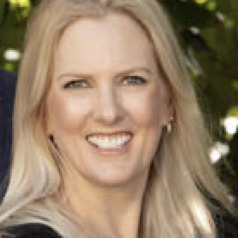
Kirsten Locke
Associate Professor, University of Auckland, Waipapa Taumata Rau
Kirsten Locke is an associate professor in education philosophy and theory who is interested in the systemic 'big picture' of education in universities. Kirsten has an interest in women, gender, equity, and all things politics. Key areas of focus include the current state of the university, the provision of teacher education in university settings, the role of the university in society, and communicating the importance of the university as an indispensable conduit to democratic citizenry.
Less ![]()
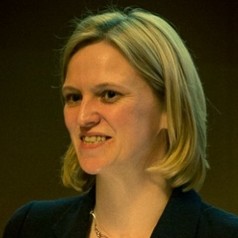
Kirsten McConnachie
Professor of Socio-Legal Studies, University of East Anglia
Kirsten McConnachie is Professor of Socio-Legal Studies at the University of East Anglia and Associate Dean for Postgraduate Research in the Faculty of Social Science. She is a Research Associate at the University of Oxford's Refugee Studies Centre, a Senior Research Associate of the University of London's Refugee Law Initiative, and a trustee of the UK Socio-Legal Studies Association.
Kirsten's primary area of research is refugee law from a socio-legal and interdisciplinary perspective. She has published in areas including governance by armed groups; the history and management of refugee camps; legal pluralism and non-state justice systems; legal anthropology and informal governance; forced migration in southeast Asia; the role of victims in transitional justice; and constitutional reform. Kirsten's research has been funded by major funders including the Leverhulme Trust, AHRC, John Fell Fund, Wenner-Gren Foundation and the Emslie Horniman Trust. In addition to work in refugee and forced migration studies, she is currently working on a Leverhulme-funded socio-legal study of community land ownership in Scotland.
Less ![]()
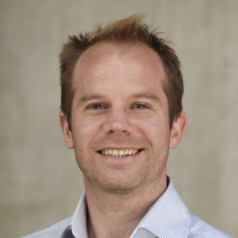
Kirsten Staff
Senior Lecturer in Pharmacy, University of South Australia
Registered Pharmacist, Pharmacy Program Director and Senior Lecturer in Pharmacy at UniSA.
Kirsten graduated from Aston University (Birmingham, UK) in 2002 obtaining a First Class Master’s degree in Pharmacy (MPharm). He undertook an internship split between the Royal United Hospital (Bath, UK) and Sainsbury’s Pharmacy Group in Bath where upon registration with the Royal Pharmaceutical Society he became Pharmacy Manager. In 2006 Kirsten commenced a PhD at Kings College London in collaboration with MedPharm Ltd (Guildford, UK) and Transport Pharma (Boston, US). The PhD project investigated the active transport of small ionic complexes across the skin using iontophoresis to enhance wound healing.
Upon completing his PhD Kirsten undertook a role at the University of Hertfordshire (UK) as a Lecturer in Pharmaceutics during which he completed his diploma in Higher Education. Here he coordinated diverse undergraduate courses within the pharmacy program including Medicines and Pharmacy Practice, Pharmaceutical and Medical Microbiology and Pharmacy Business Management.
Kirsten moved to Adelaide during 2010 to undertake a position as Lecturer in Clinical Pharmacy at UniSA where he is the director of the professionally accredited pharmacy undergraduate program. Kirsten currently coordinates Pharmacy Practice 1 and Advanced Therapeutics and continues to teach dermatology across the program. Current projects include biosimilar medicine literature reviews on behalf of the Department of Health biosimilar awareness initiative and now for GBMA Education under the Biosimilar Education Grant.
Less ![]()
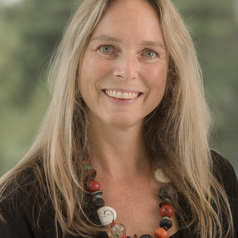
Kirsten Zickfeld
Distinguished Professor of Climate Science, Simon Fraser University
Dr. Kirsten Zickfeld is a Distinguished Professor of Climate Science in the Geography Department at Simon Fraser University, which she joined in 2010. She holds a PhD in physics (2004) from the University of Potsdam in Germany.
Dr. Zickfeld’s primary research interests are in the long-term effects of human activities on climate. She has published extensively in the research literature on topics such as the irreversibility of human-induced climate change, the climate effects of carbon dioxide removal, and carbon budgets consistent with climate targets.
Dr. Zickfeld served as Lead Author for the Sixth Assessment Report of the Intergovernmental Panel on Climate Change (IPCC) and the IPCC Special Report on the Global Warming of 1.5 degrees. She also serves on the Scientific Steering Committee of the Global Carbon Project.
Less ![]()
- Market Data





















